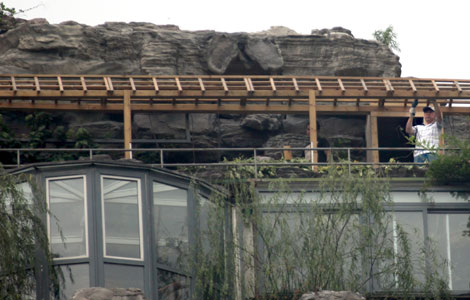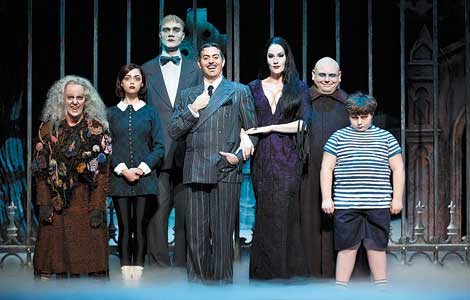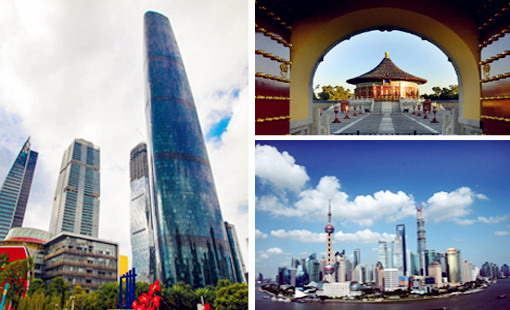Over 200 dead after Egypt forces crush protesters
Updated: 2013-08-15 06:29
(Agencies)
|
||||||||
CAIRO - Egyptian security forces crushed the protest camps of thousands of supporters of the deposed Islamist president on Wednesday, shooting almost 200 of them dead in the bloodiest day in decades and polarising the Arab world's most populous nation.
At least 235 people were killed in all, including at least 43 police, and 2,000 wounded, a health official said, in fierce clashes that spread beyond Cairo to towns and cities around Egypt. Deposed president Mohamed Morsi's Muslim Brotherhood said the death toll of what it called a "massacre" was far higher.
While bodies wrapped in carpets were carried to a makeshift morgue near the Rabaa al-Adawiya mosque, the army-backed rulers declared a one-month state of emergency, restoring to the military the unfettered power it wielded for decades before a pro-democracy uprising toppled autocrat Hosni Mubarak in 2011.
Interior Minister Mohamed Ibrahim said 43 police were among the dead. Security forces had completely cleared two protest camps in the capital and would not tolerate any further sit-ins, he said, vowing to restore Mubarak-era security.
Prime Minister Hazem el-Beblawi defended the use of force, condemned by the United States and European governments, saying the authorities had no choice but to act to end "the spread of anarchy".
"We found that matters had reached a point that no self-respecting state could accept," he said in a televised address.
The authorities imposed a dusk-to-dawn curfew in Cairo and several other cities including Alexandria, Egypt's second city on the Mediterranean coast.
The use of force prompted Mohamed ElBaradei, a former UN diplomat and the most prominent liberal supporter of Morsi's overthrow, to resign as vice president, saying the conflict could have been resolved by peaceful means.
"The beneficiaries of what happened today are those call for violence, terrorism and the most extreme groups," he said.
Thousands of Morsi's supporters had been camped at two major sites in Cairo since before he was toppled on July 3, and had vowed not to leave the streets until he was returned to power.
The assault, ending a six-week stand-off, defied international pleas for restraint and a negotiated political solution. Straddling the Suez Canal, a vital global trade route, Egypt is a key US ally at the heart of the Middle East and was the first Arab state to make peace with Israel.
US Secretary of State John Kerry, European Union foreign policy chief Catherine Ashton and UN Secretary-General Ban Ki-moon all deplored the use of force and called for the state of emergency to be lifted as soon as possible.
- Restraint called for in Egypt
- Egypt forces crush protesters
- US condemns use of violence against protesters in Egypt
- Egypt's Brotherhood top leaders arrested: TV
- Sky News cameraman killed in Egypt violence
- Egypt's police start disbanding pro-Morsi sit-ins
- Egypt's rival sides upset with new governors
- Egypt police to besiege sit-ins within 24 hours

 Demolition work starts on rooftop villa structure
Demolition work starts on rooftop villa structure
 Thrills in store for Chicago Air and Water Show
Thrills in store for Chicago Air and Water Show
 Memorial to expeditionary soldiers opens
Memorial to expeditionary soldiers opens
 Death toll from Egypt violence rises to 638
Death toll from Egypt violence rises to 638
 Tunes that travel
Tunes that travel
 Macabre Addams Family tests musical tastes
Macabre Addams Family tests musical tastes
 Spielberg has desire to work with Zhang Yimou
Spielberg has desire to work with Zhang Yimou
 Li Na advances to 3rd round at Cincinnati Open
Li Na advances to 3rd round at Cincinnati Open
Most Viewed
Editor's Picks

|

|

|

|

|

|
Today's Top News
No remorse as Abe marks surrender anniversary
China to be world's No 1 consumer
China Mobile looks to data services
Beijing, Moscow hail military ties
Japan exports to China at lowest in four years
Fish ecosystem 'on verge of collapse'
First public rental housing fund launched
Trimming standard ideas of butchering
US Weekly

|

|
![Members of the Muslim Brotherhood and supporters of ousted Egyptian President Mohamed Mursi flee from tear gas and rubber bullets fired by riot police during clashes, around Cairo University and Nahdet Misr Square, where they are camping in Giza, south of Cairo August 14, 2013. [Photo/Agencies] Over 200 dead after Egypt forces crush protesters](../../attachement/jpg/site1/20130815/d4bed9d4d2201376499a04.jpg)








